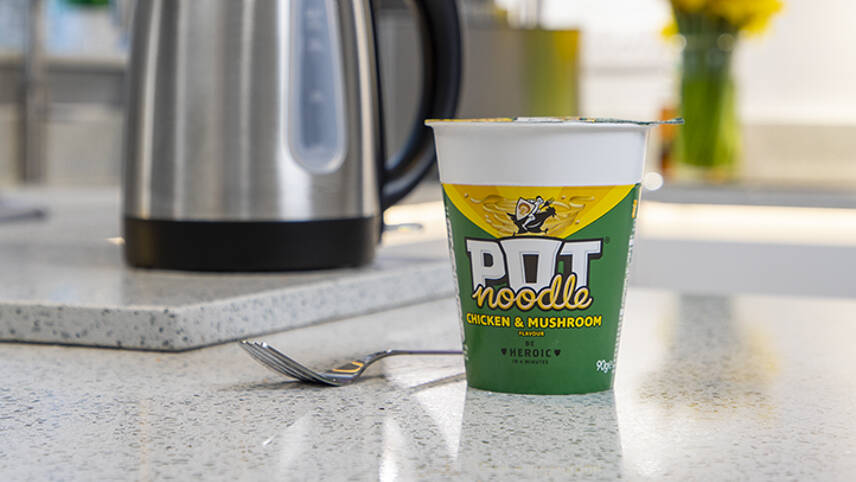Register for free and continue reading
Join our growing army of changemakers and get unlimited access to our premium content

Consumers can recycle the new pots at home with other cardboard and paper packaging
The new paper pot is made with 90% Forest Stewardship Council (FSC) certified paper and will roll out exclusively in Tesco, with a trial of 500,000 pots of the brand’s Chicken and Mushroom flavour.
The freshness and safety of the products are ensured by a single layer of ultra-thin plastic film, which protects the paper when water is added but doesn’t inhibit the recyclability of the pot.
According to the parent company Unilever, the success of the trial could lead to the integration of paper pots into the full Pot Noodle range, with the potential to remove 4,000 tonnes of virgin plastic each year.
Unilever UK & Ireland’s general manager foods Andre Burger said: “From material development and testing through to new manufacturing processes and capabilities, big packaging innovations require the investment of time and expertise across many teams and partners.
“There have been plenty of challenges along the way, but we are committed to reducing the plastic in our packaging and to a paper-based future for our pots, without compromising on the Pot Noodle experience our shoppers know and love. We are now excited to learn from this initial trial with the ambition of bringing our paper pots to more shoppers across the UK soon.”
Consumers can recycle the new pots at home with other cardboard and paper packaging, with the on-pack recycling label (OPRL), providing clear guidance to shoppers on how to dispose of the Pot Noodle packaging.
The Pot noodle sauce sachets are not yet recyclable at home but can be taken in-store to soft plastic collection points in selected retailers.
Unilever has set targets to reach net-zero emissions for products by 2039; to achieve a deforestation-free supply chain by 2023; to make all products biodegradable by 2030 and to scale up regenerative agriculture.
Furthermore, Unilever is aiming to halve the amount of virgin plastic it uses in its packaging by 2025 while achieving an absolute reduction of more than 100,000 tonnes in plastic usage. The company has also committed to collecting and processing more packaging than it sells and to ensuring that 100% of its plastic packaging is designed to be fully reusable, recyclable or compostable.
Tesco’s packaging campaigns manager Courtney Pallett said: “Removing or reducing plastic wherever we can remains a key focus for us, so we’re excited to work with Unilever to exclusively trial Pot Noodle’s new sustainably sourced, FSC-certified paper packaging and to continue to work together to help protect our planet.”
According to a report published by the Organisation for Economic Cooperation and Development (OECD) last year, global plastic waste generation more than doubled from 2000 to 2019 to 353 million tonnes.
Nearly two-thirds of plastic waste comes from plastics with lifetimes of under five years, with 40% coming from packaging.
Earlier this year, the government announced that the Plastic Packaging Tax is set to be reformed, in an effort to catalyse funding for chemical recycling innovations that are needed to develop solutions for harder-to-recycle items.


Please login or Register to leave a comment.